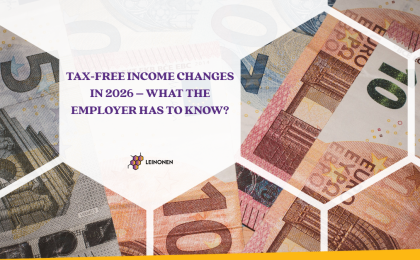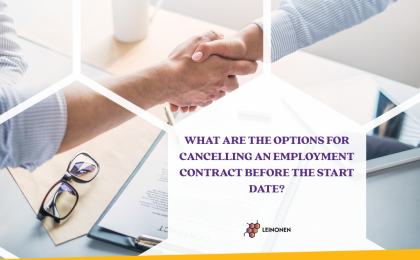No VAT is added in the first case and the buyer does not have the right to deduct input VAT, and in the second case, VAT is added and the buyer has the right to deduct input VAT. Defining these transactions has caused quite a lot of confusion, as the sale of goods or services and the transfer of an enterprise or a part thereof have completely different results from the standpoint of VAT. In many cases, taxpayers have tried to reclassify the sales of goods as the transfer of an enterprise in order to avoid paying VAT. At the same time, there have been disputes of an opposite nature where the tax authority reassesses the activity of an enterprise and claims that sale of goods is actually nothing more than a transfer of the company. The issue often lies in details, and a wrong interpretation of them can create a significant tax risk. The Supreme Court has repeatedly taken a stand on this. As the Value Added Tax Act is relatively laconic when it comes to the transfer of an enterprise, then the case law of the Supreme Court is an important source of additional information for the taxpayer, which they can use to reduce their risks when concluding transactions.
Below, I will give a short overview of the first such position of the Supreme Court in this matter1, i.e. whether and when a transaction constitutes the transfer of an enterprise or a part thereof, or when it is just an ordinary sale of goods. Those who would like to take a closer look at said ruling can find it on the website of the Supreme Court. I will highlight the most important positions below. What must certainly be kept in mind is that the Supreme Court has made many more judgments about this issue which detail its present position. However, the basic principle is highlighted in the ruling discussed below.
The Administrative Chamber of the Supreme Court points out that the circumstances of specific transactions as well as the previous and subsequent conduct of the enterprises must be analysed when the transfer of an enterprise or a part thereof is assessed. The significant criteria to be considered when the transfer of an enterprise is assessed are, among others:
- type of the enterprise;
- transfer of an immovable, production equipment and other material resources;
- takeover of intangible assets and the organisation;
- continuation of customer and supplier relationships;
- similarity of activities preceding and following the takeover;
- continuation of economic activities and if the activities were interrupted in the meantime, the time of the interruption;
- preservation of human resources in the case of some enterprises;
- previous activities of the acquirer of the enterprise;
- place of business of the transferor and the acquirer;
- and whether the members of the managing bodies are the same.
The Administrative Chamber of the Supreme Court found that these criteria carry a different weight in the case of enterprises of different types. All in all, it can be said that the sale of goods alone cannot be regarded as a transfer of an enterprise or a part thereof. What must also be analysed is whether contracts, and the rights and obligations of the enterprise, are also handed over with the goods.
The buyer is who is primarily at risk if a transaction is incorrectly qualified. What must be kept in mind is if the buyer believes that they are buying goods, but the tax authority reclassifies the transaction as the transfer of an enterprise, then the buyer does not have the right to reclaim the input VAT shown on the invoice from the state. Also, every buyer will also receive potential obligations with the goods.
1 3-3-1-20-11.




